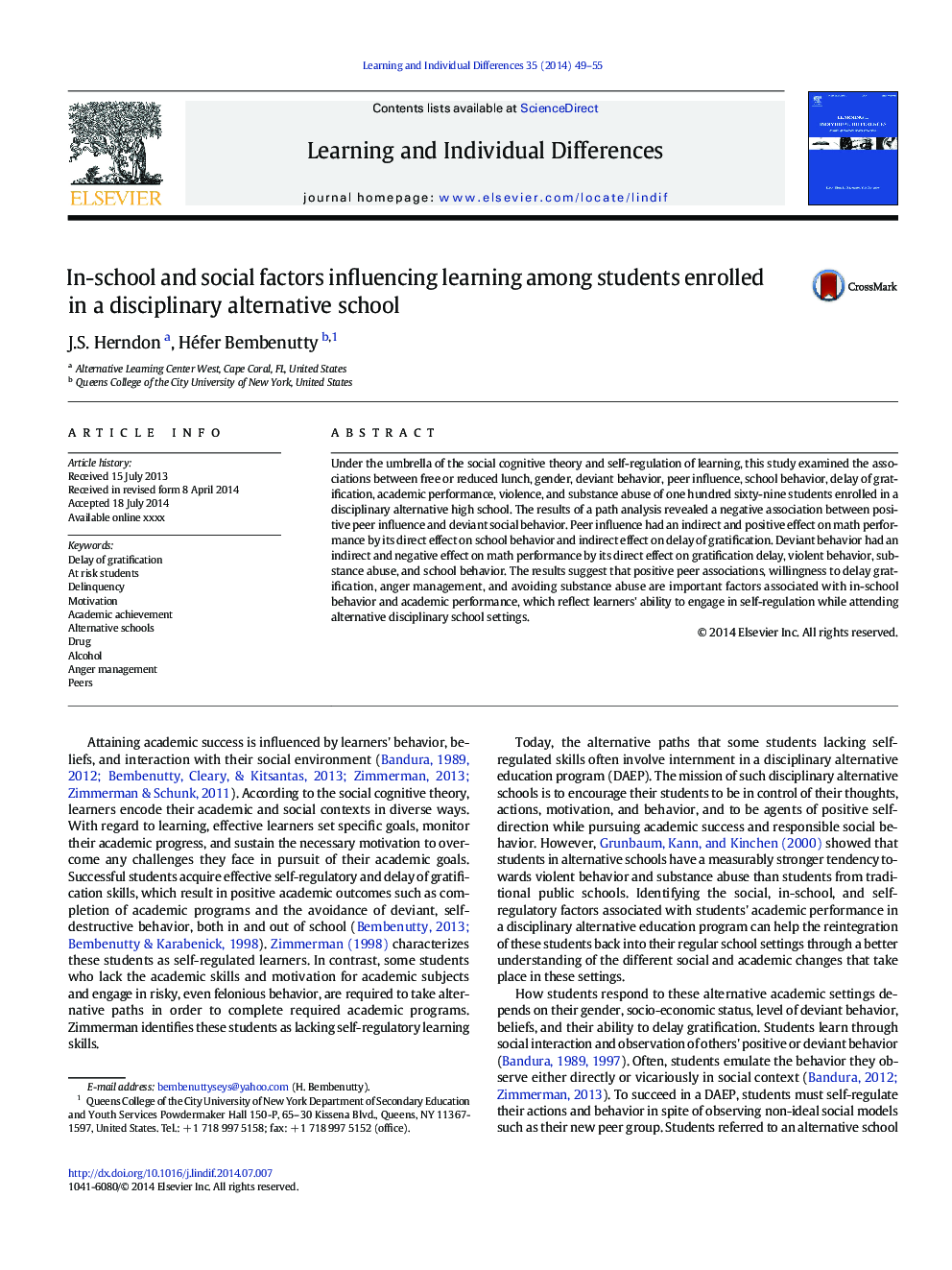| Article ID | Journal | Published Year | Pages | File Type |
|---|---|---|---|---|
| 6845047 | Learning and Individual Differences | 2014 | 7 Pages |
Abstract
Under the umbrella of the social cognitive theory and self-regulation of learning, this study examined the associations between free or reduced lunch, gender, deviant behavior, peer influence, school behavior, delay of gratification, academic performance, violence, and substance abuse of one hundred sixty-nine students enrolled in a disciplinary alternative high school. The results of a path analysis revealed a negative association between positive peer influence and deviant social behavior. Peer influence had an indirect and positive effect on math performance by its direct effect on school behavior and indirect effect on delay of gratification. Deviant behavior had an indirect and negative effect on math performance by its direct effect on gratification delay, violent behavior, substance abuse, and school behavior. The results suggest that positive peer associations, willingness to delay gratification, anger management, and avoiding substance abuse are important factors associated with in-school behavior and academic performance, which reflect learners' ability to engage in self-regulation while attending alternative disciplinary school settings.
Keywords
Related Topics
Social Sciences and Humanities
Psychology
Developmental and Educational Psychology
Authors
J.S. Herndon, Héfer Bembenutty,
